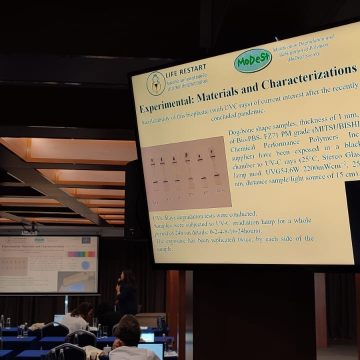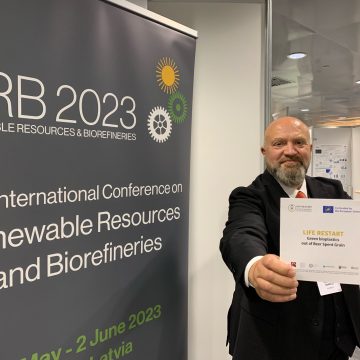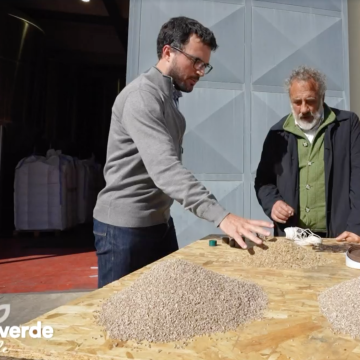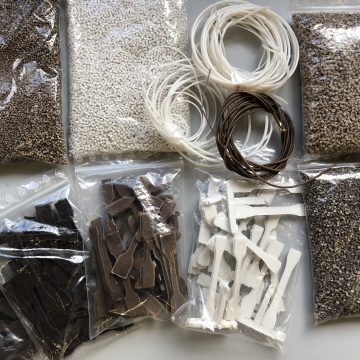UNIME’s research at EPNOE 2025 and its implications for industrial production
Reuse of bEer SpenT
grAin
foR bioplasTics
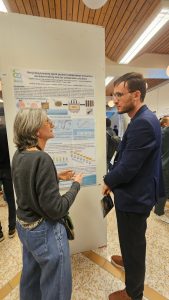 From August 25th to 28th, the 9th EPNOE International Polysaccharide Conference was held in Sweden, organized by Mid Sweden University, with the participation of UNIME.
From August 25th to 28th, the 9th EPNOE International Polysaccharide Conference was held in Sweden, organized by Mid Sweden University, with the participation of UNIME.
During the Conference, Salim Brahimi, PhD UNIME, presented a poster entitled “Durability Assessment of biocomposites developed in the LIFE RESTART project”. In the presentation, it is explained that the project develops sustainable biocomposites using renewable raw materials. More specifically, it is explained: «In particular, polybutylene succinate (PBS) was combined with brewer’s spent grain (BSG), a polysaccharide-rich by-product of the brewing industry, to create eco-friendly alternatives to fossil-based plastics. PBS/BSG composites (70/30 wt%) were processed by hot melt compounding and injection molding, and then subjected to artificial ageing (0 h, 300 h, 600 h, and 900 h). Mechanical, physico-chemical, and morphological analyses were carried out to evaluate the effect of environmental exposure on long-term durability. The results demonstrate the potential of PBS/BSG biocomposites for industrial applications, supporting the establishment of the first production site in Roccavaldina (Messina, Italy)».
An Excellent Platform
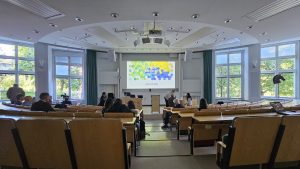 EPNOE 2025 offered an excellent platform to exchange knowledge on polysaccharide science and renewable materials. Discussions highlighted recent advances in cellulose-based systems, functional biopolymers, and innovative applications for sustainable development, underlining the strong connection between academic research and industrial practice.
EPNOE 2025 offered an excellent platform to exchange knowledge on polysaccharide science and renewable materials. Discussions highlighted recent advances in cellulose-based systems, functional biopolymers, and innovative applications for sustainable development, underlining the strong connection between academic research and industrial practice.
The Conference stood out for its relevance in several areas:
- Scientific sessions: presentations and discussions on polysaccharides, cellulose-based materials, nanocellulose, and biorefinery strategies;
- Networking: exchange of ideas with researchers and industrial partners interested in bio-based composites and circular economy applications;
- Industry engagement: several companies and factories showcased innovative products, technologies, and testing methods related to bio-based polymers;
- Curiosities & feedback: many participants showed particular interest in the LIFE RESTART project, especially in the valorization of brewer’s spent grain and its potential for large-scale industrial applications.
Research Results in Brief
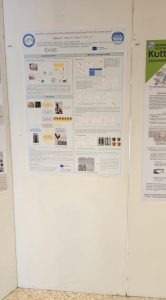 Participation in EPNOE 2025 was an excellent opportunity to present and disseminate the research outcomes of the LIFE RESTART project. The main results can be summarized as follows:
Participation in EPNOE 2025 was an excellent opportunity to present and disseminate the research outcomes of the LIFE RESTART project. The main results can be summarized as follows:
- Demonstrated the potential of PBS-BSG composites as sustainable alternatives to fossil-based plastics;
- Highlighted durability challenges (discoloration, cracking) during environmental ageing;
- Identified future directions (stabilizers, formulation improvements);
- Strengthened networking with researchers and industrial partners.
Furthermore, participation in the Conference supported the project’s mission of promoting the industrial adoption of sustainable composites and enhanced the visibility of LIFE RESTART within the international scientific community.
Co-funded by the European Union. Views and opinions expressed are however those of the author(s) only and do not necessarily reflect those of the European Union or CINEA. Neither the European Union nor the granting authority can be held responsible for them.



